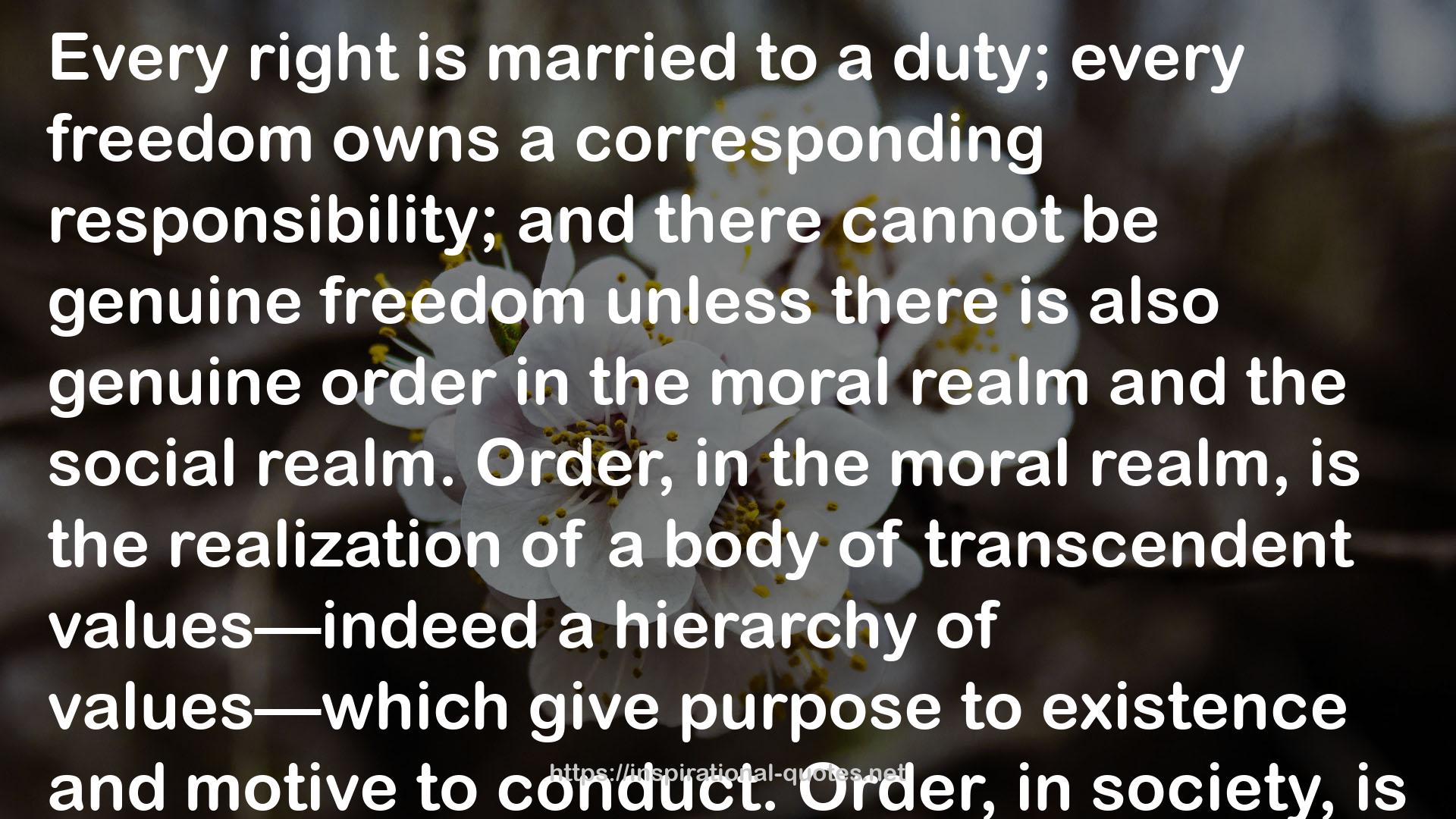" Every right is married to a duty; every freedom owns a corresponding responsibility; and there cannot be genuine freedom unless there is also genuine order in the moral realm and the social realm. Order, in the moral realm, is the realization of a body of transcendent values—indeed a hierarchy of values—which give purpose to existence and motive to conduct. Order, in society, is the harmonious arrangement of classes and functions which guards justice and gives willing consent to law and insurers that we all shall be safe together. Although there cannot be freedom without order, in some sense there is always a conflict between the claims of order and the claims of freedom. We often express this conflict is the competition between the desire for liberty and the desire for security. Although modern technological revolution and modern mass–democracy have made this struggle more intense, there is nothing new about it in essence. President Washington remarked that ‘individuals entering into a society must give up a share of their liberty to preserve the rest.’ But doctrinaires of one ideology or another, in our time, continue to cry out for absolute security, absolute order, or for absolute freedom, power to assert the ego in defiance of all convention. At the moment, this fanatic debate may be particularly well discerned in the intemperate argument over academic freedom. I feel that in asserting freedom as an absolute, somehow divorced from order, we are repudiating our historical legacy of freedom and exposing ourselves to the danger of absolutism, whether that absolutism be what Tocqueville called ‘democratic despotism’ or what recently existed in Germany and now exists in Russia. ‘To begin with unlimited freedom,’ Dostoevski rights in The Devils, ‘is to end without on limited despotism. "
― Russell Kirk
Image for Quotes

